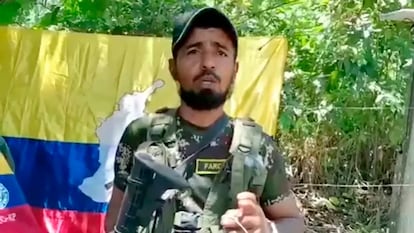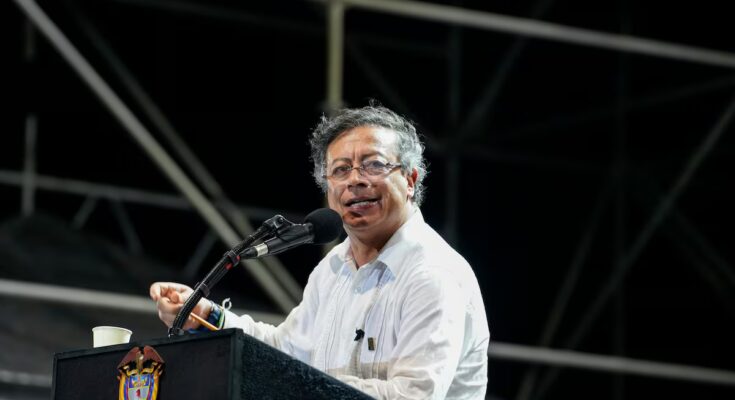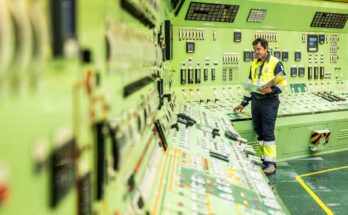In the series of extradition processes that the Colombian Prosecutor’s Office receives from different countries every year, the files have recently moved with unusual slowness. President Gustavo Petro, who must give final approval for a person to be transferred to another country to serve a sentence or face trial, maintains in his office dozens of cases that have already passed all previous procedures, including approval from the Supreme Court of Justice. Although Colombia maintains a high pace of deliveries, its decision-making times have become more erratic in one of the most traditional and infamous instruments of its cooperation with the United States in the fight against drug trafficking, which Petro has questioned in the past and which has become the axis of his strong clash with President Donald Trump, who even revoked his visa, calling him a “drug leader” and placing him on the list of people sanctioned for alleged links to drug trafficking.
At first glance, the cooperation remains. In the first half of the year, Colombia carried out 154 extraditions, of which 84 for crimes related to drug trafficking and 94 directed towards the United States, while in the whole of 2024 there were 198. Behind this global figure, however, lies an increase in requests and the stagnation of the cases of some big bosses, treated as usual by the High Court and frozen in the Executive.
At the beginning of the Petro government, with Néstor Osuna Minister of Justice, the Executive promoted judicial cooperation. In 2023 the government reported 264 extraditions, the highest annual figure since 2015, and in 2024 it carried out 198 renditions. At that time, the average time between Supreme Court approval and presidential signature ranged from one to two weeks. Her successor, Ángela María Buitrago, also maintained a steady stream of extraditions during her year in office. This deadline marks a major contrast with the current times, which has attracted the attention of prosecutors and lawyers participating in the trials.
One of the most iconic cases showing the change is that of Larry Amaury Álvarez Núñez, or Larry Changa, the second in command of the transnational group Tren de Aragua. The Venezuelan has been held in Bogotá’s La Picota prison since June 2024. The Court approved his extradition a year later, after a complex process, and the presidential signature, which usually took a week at most, is still pending after five months.
A Colombian prosecutor’s source familiar with the trial explains that there were initially administrative delays because two countries, Chile and Venezuela, asked Changa to try him for crimes committed in their territories. As in any procedure of this type, the requests initially arrived at the Farnesina, which forwarded them to the General Prosecutor’s Office. The investigative body carries out an initial jurisdictional check, such as verifying your identity. Then it is sent to the Supreme Court, which does an analysis of the background and checks, for example, that the crime for which the person is wanted is also classified as a crime in Colombia. In the case of Larry Changa, this analysis took time due to the existence of two simultaneous requests. Although the Supreme Court finally approved the transfer to Chile, the man remains detained in Bogota. All that is missing is the final signature of the president, who is free to deny extradition. The bottleneck is no longer in the judicial control, but in the final phase of the Casa de Nariño.
Another of the men whose judicial future depends on Petro’s signature is Giovanny Andrés Rojas, alias Spider. He is the head of the so-called Border Commandos, a structure of FARC dissidents that operates in the Amazonian department of Putumayo. He was captured in Bogotá last February, while participating in a meeting as a peace officer with government delegates. The Prosecutor’s Office argued at the time that although domestic arrest warrants against him had been suspended because of his role in the dialogues, extradition warrants were not, and the US government had requested one.
What happened was a public freeze on extradition. Other delegates of the armed group have conditioned the continuity of the table on Araña’s stay in Colombia and Petro communicated, through the Ministry of Justice, that this transfer has been suspended. “If the president signs the extradition, the group will leave the table immediately,” confirms a lawyer who advises the extradition. The Government recognizes that any movement regarding the dossier could “break the trust” that it has tried to build with this group, one of the few that has a process of progress in the policy of total peace.

A third known case is that of Willington Henao, alias Mocho Olmedoleader of the dissident group of the extinct FARC known as the 33rd Front, a group that is in negotiations with the Executive. The Supreme Court approved his extradition to the United States in May this year, but the order was suspended by the government in July and has not been revived. The most recent case that depends on the signature of the Executive is that of Andrés Felipe Marín, alias Pipe Tuluá, leader of the criminal gang La Inmaculada, whose extradition was approved by the High Court on November 12 and which represents an important target for American justice. With tension growing between Petro and Trump, and with the Colombian’s bet that his total peace will deliver results in the nine months he has left in office, it is unlikely to be reactivated.



